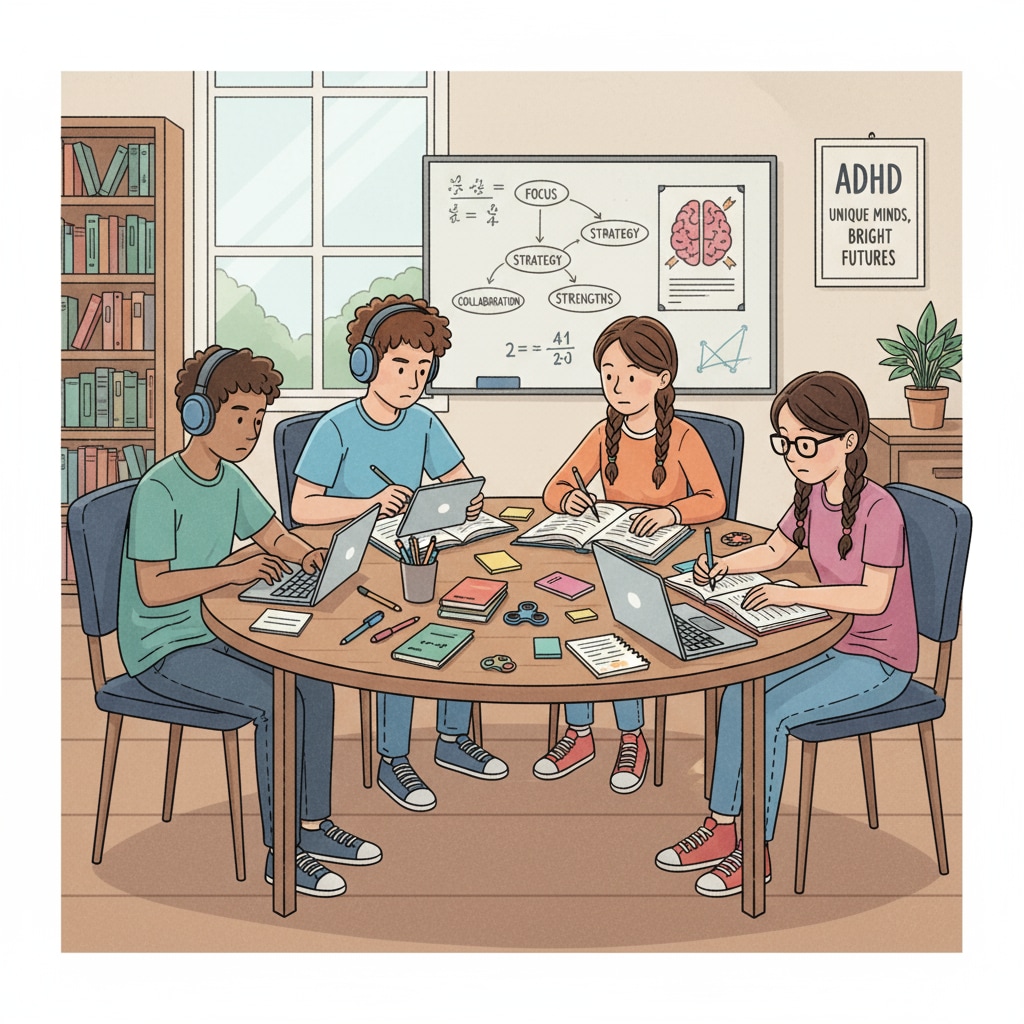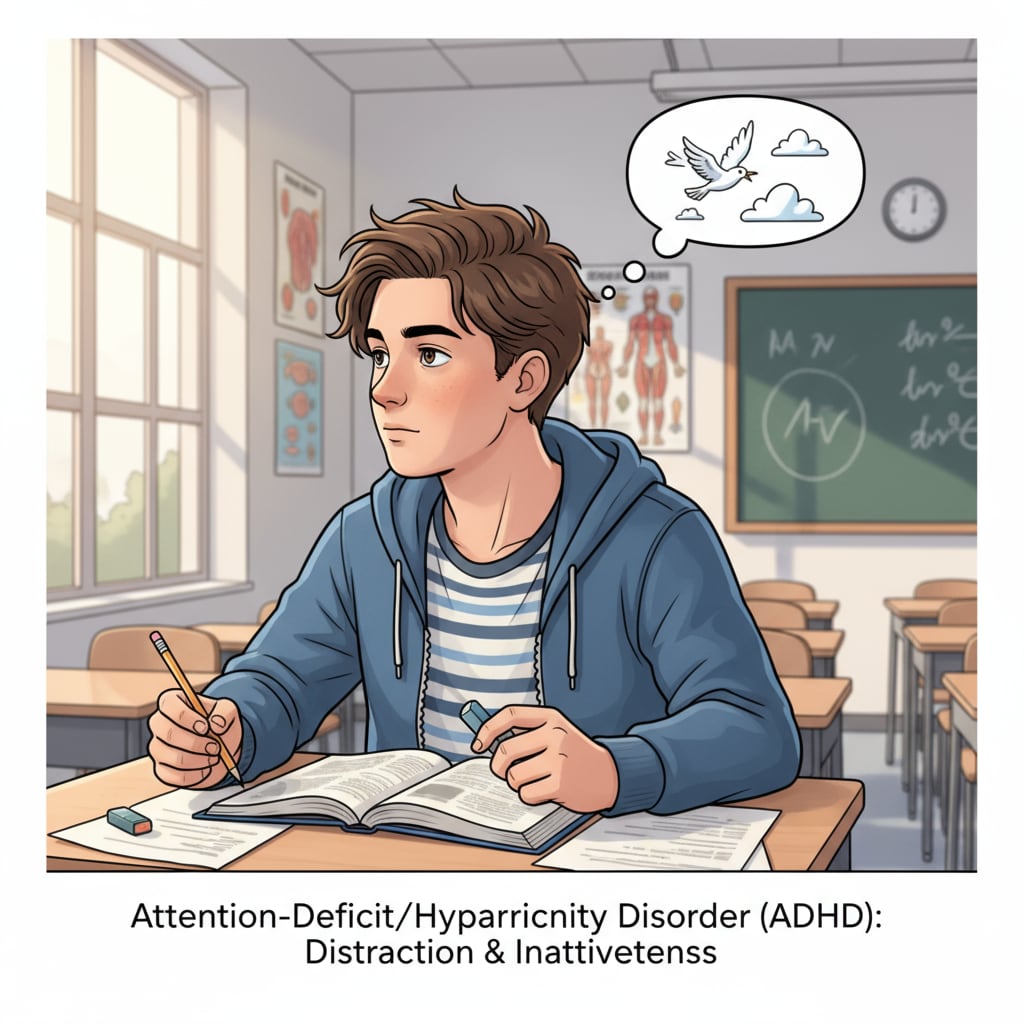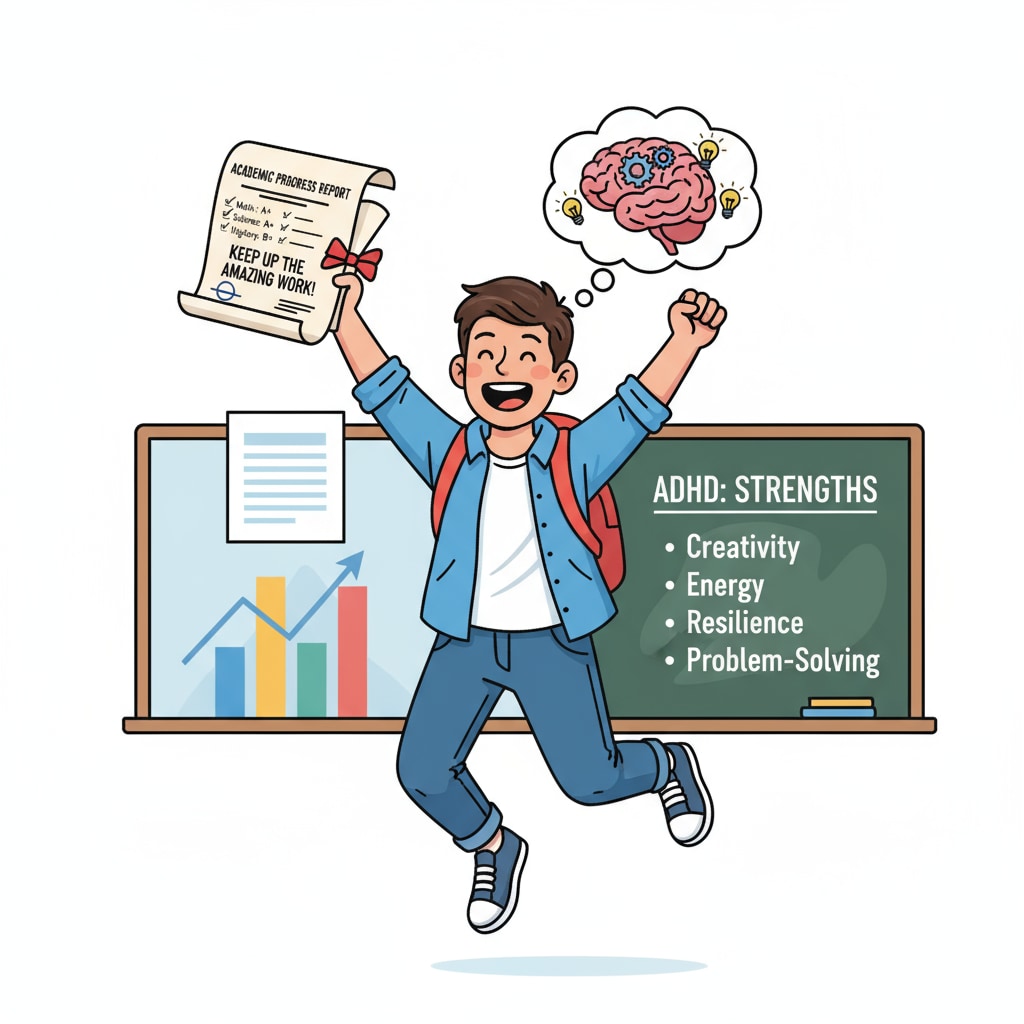Academic setbacks, family education, ADHD, and self-discipline are crucial aspects for many teenagers who are struggling in their learning journey. For those with Attention-Deficit/Hyperactivity Disorder (ADHD), the road to academic success can be particularly challenging. However, with the right strategies and support, they can turn things around and build a bright future.

Understanding the Characteristics of ADHD in Teens
ADHD is a neurodevelopmental disorder that affects a significant number of adolescents. According to the CDC, it can lead to symptoms such as inattention, hyperactivity, and impulsivity. Teens with ADHD often have difficulty concentrating in class, organizing their tasks, and following through on assignments. Understanding these characteristics is the first step in helping them overcome academic setbacks. For example, they may be easily distracted by their surroundings, which makes it hard for them to absorb knowledge during lessons.

The Role of Family Education
Family education plays a vital role in the growth of ADHD teens. Parents should create a supportive and structured environment at home. This includes setting clear rules and routines, such as specific study times and bedtimes. In addition, positive reinforcement is key. When teens with ADHD achieve small goals, like completing a homework assignment on time, parents should praise and reward them. This helps boost their self-esteem and motivation. As a result, they are more likely to be self-disciplined in their studies. According to the American Psychiatric Association, family support can significantly improve the academic performance of ADHD teens.
Another important aspect is communication. Parents need to have open and honest conversations with their teens, listening to their concerns and difficulties. By doing so, they can better understand their needs and provide appropriate guidance.
Readability guidance: In this section, we’ve used short paragraphs to clearly convey the importance of family education. We’ve also provided practical examples and cited external authorities to support the points. The use of transition words like “in addition” and “as a result” helps with the flow of the text.
Building an Effective Learning System
For ADHD teens, establishing an effective learning system is essential. This can start with creating a dedicated study space that is free from distractions. They can also break down large tasks into smaller, more manageable ones. For example, instead of trying to complete a long research paper in one sitting, they can divide it into sections such as topic research, outline creation, and writing each paragraph. Using tools like planners and to-do lists can also help them stay organized and on track.
Moreover, finding the right learning methods is crucial. Some ADHD teens may learn better through visual aids, while others may prefer hands-on activities. By exploring different approaches, they can discover what works best for them and improve their learning efficiency.
Readability guidance: Here, we’ve presented practical steps for building a learning system in a clear and concise manner. The use of “for example” and “moreover” helps to explain the ideas and add more details.
Seeking Appropriate Educational Resources
There are various educational resources available for ADHD teens. Specialized tutoring services can provide one-on-one support tailored to their specific needs. Schools may also offer accommodations, such as extra time on tests or preferential seating. Additionally, there are many online resources, such as educational apps and websites, that can make learning more engaging and accessible.
Support groups for ADHD teens and their families can also be beneficial. They offer a platform for sharing experiences, tips, and emotional support. By connecting with others who are going through similar challenges, they can gain valuable insights and motivation.
Readability guidance: This section lists different types of educational resources. The use of “additionally” and “also” helps to introduce new ideas and make the text more coherent.
In conclusion, academic setbacks, family education, ADHD, and self-discipline are intertwined elements in the lives of ADHD teens. By understanding their unique characteristics, providing strong family support, building effective learning systems, and seeking appropriate educational resources, these teens can overcome their challenges, regain their confidence in learning, and plan for a successful future.

Readability guidance: The conclusion sums up the main points of the article, emphasizing the importance of various factors in helping ADHD teens. The use of transition words throughout the article has enhanced the readability and logical flow.


